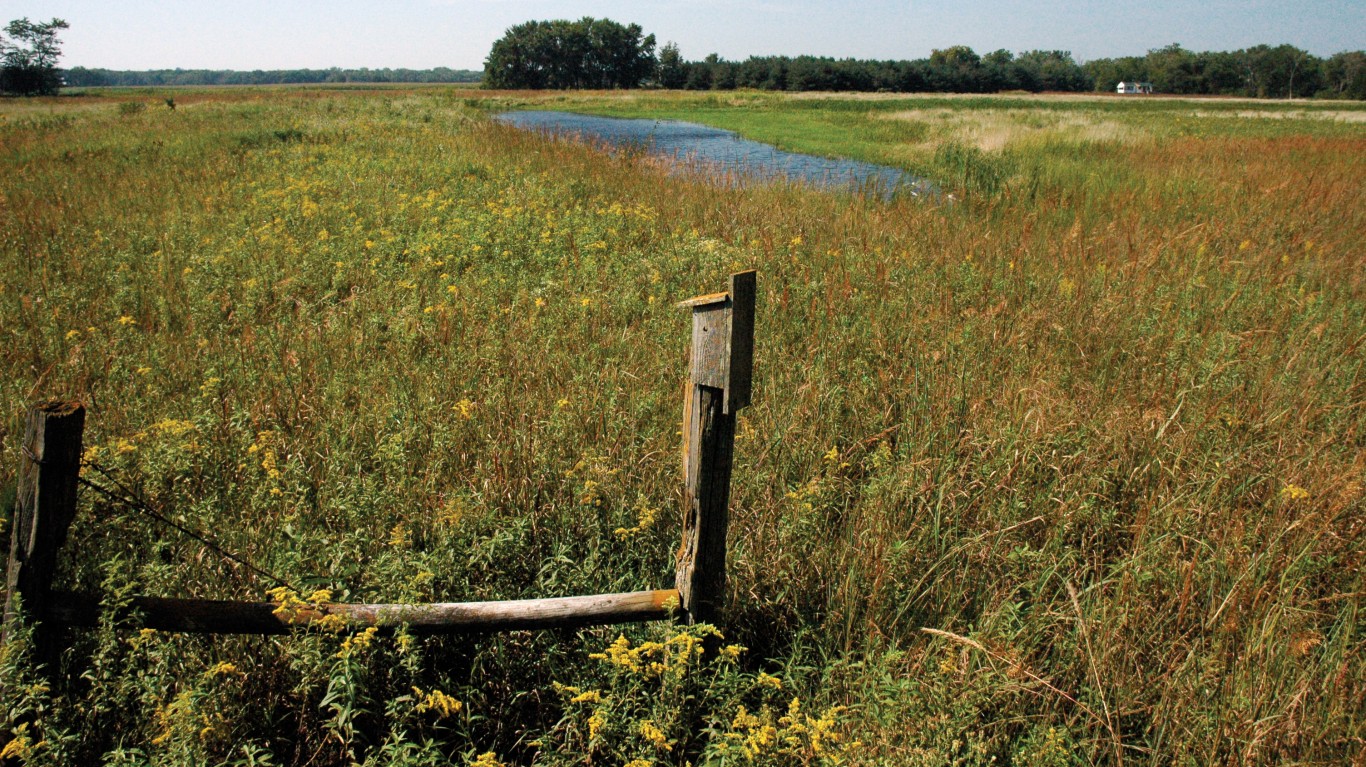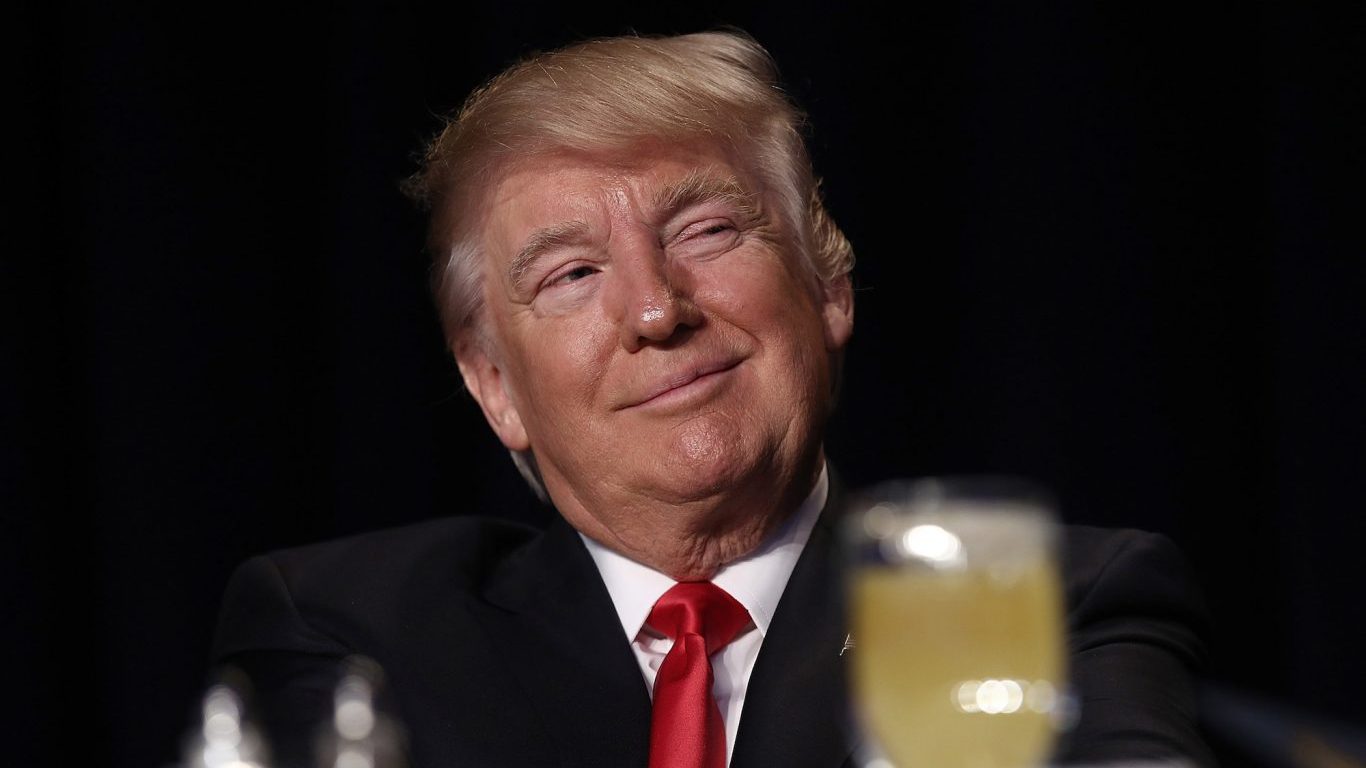
In the early days of American democracy, being a wealthy, white, male landowner was a prerequisite to having a voice in how the country was run. So it should come as no surprise that many of America’s leaders have been quite wealthy.
Winning a bid for the presidency requires a significant amount of hard work and good luck, but it is also often helpful to have another key resource — wealth. Money and connections play a role in politics, and coming from a wealthy family can be the determining factor in whether someone’s presidential aspirations are realized. The U.S. has seen a number of wealthy political dynasties, including the Kennedys, the Bushes, and the Adamses. Click here to see the richest person in every state.
The current occupant of the Oval Office, Donald Trump, became the richest ever U.S. president upon taking office in 2017. Like many other presidents on this list, Trump had significant advantages in becoming rich. In 1971, he took over his father’s real estate company, the Trump Organization.
24/7 Wall St. estimated the peak net worth of every president based on all relevant sources of wealth, including incomes, properties, spouses, and inheritance, and adjusted it to inflation. There are 12 U.S. presidents who at one point in their lives had an estimated net worth of at least $50 million, adjusted for inflation.
Click here to see America’s 12 richest presidents
Click here to read our methodology

12. John Tyler
> Term: 1841-1845 (10th president)
> Source of fortune: Inherited
> Peak net worth (inflation adjusted): $58.7 million
John Tyler was one of many presidents whose inheritance of land and property became largely his source of wealth. From his parents, he inherited the thriving family tobacco plantation in Virginia. And when his first wife, Letitia, died while he was in office, he inherited her fortune as well.
[in-text-ad]
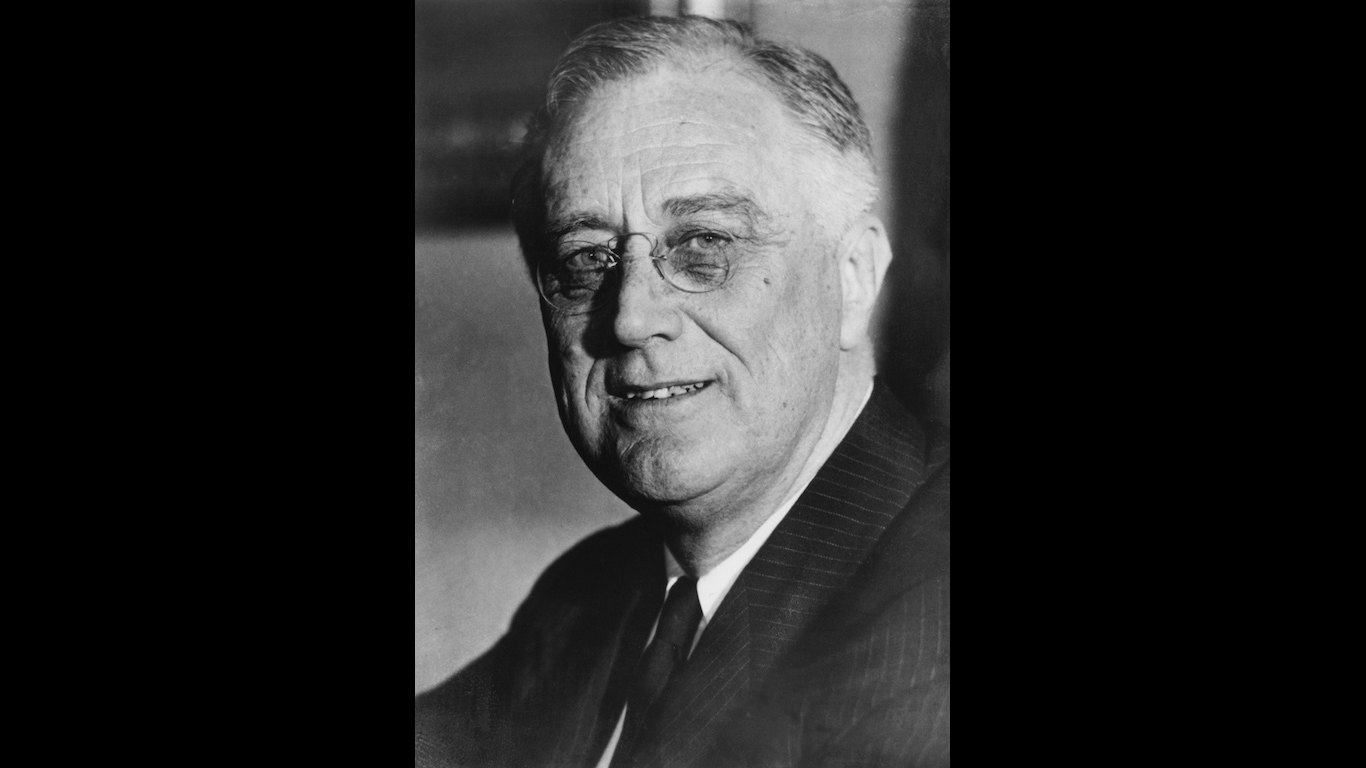
11. Franklin Delano Roosevelt
> Term: 1933-1945 (32nd president)
> Source of fortune: Inherited
> Peak net worth (inflation adjusted): $68.0 million
Coming from the wealthy and powerful Roosevelt family, Franklin Delano Roosevelt inherited much of his wealth. FDR spent almost his entire adult life in public service, beginning at age 28 when he ran to the New York state senate. FDR died in office after being elected president for a fourth time.

10. William Jefferson Clinton
> Term: 1993- 2001 (42nd president)
> Source of fortune: Books, speeches
> Peak net worth (inflation adjusted): $77.5 million
Since leaving office, former President Bill Clinton has made millions from his 2005 book “My Life.” Much of his wealth, however, actually comes from his wife, Hillary. The former secretary of state and Democratic presidential candidate reportedly received a $14 million advance for her 2014 memoir “Hard Choices” — one of the largest advances of all time. She also made millions from a number of paid speeches. Because the two are married, their net worths are combined.
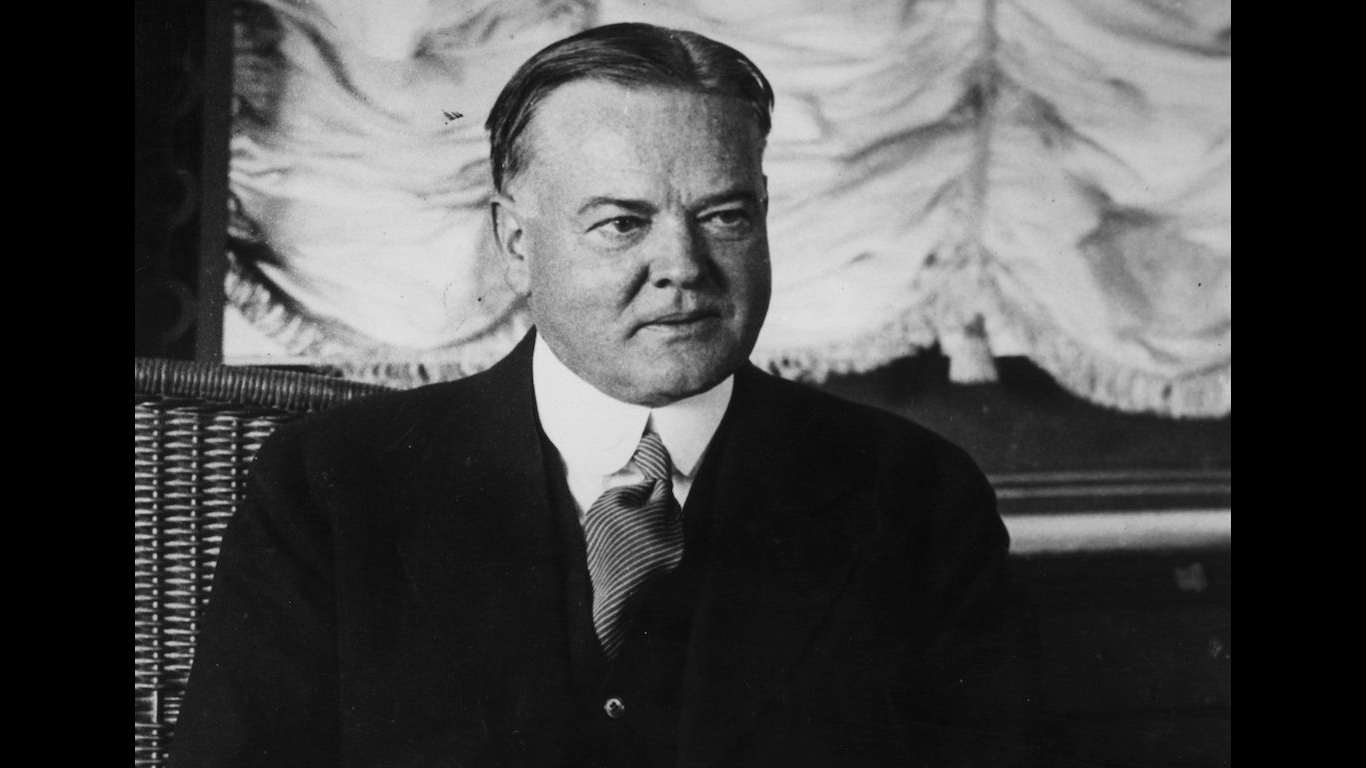
9. Herbert Clark Hoover
> Term: 1929-1933 (31st president)
> Source of fortune: Mining
> Peak net worth (inflation adjusted): $84.5 million
Herbert Hoover was orphaned as a child, but he overcame his struggles to become a successful businessman and politician. After graduating from Stanford and before entering politics, Hoover worked as a mining engineer, becoming an expert in the field. He went on to own several Burmese silver mines and write a mining engineering textbook, all of which contributing to his considerable wealth.
[in-text-ad-2]
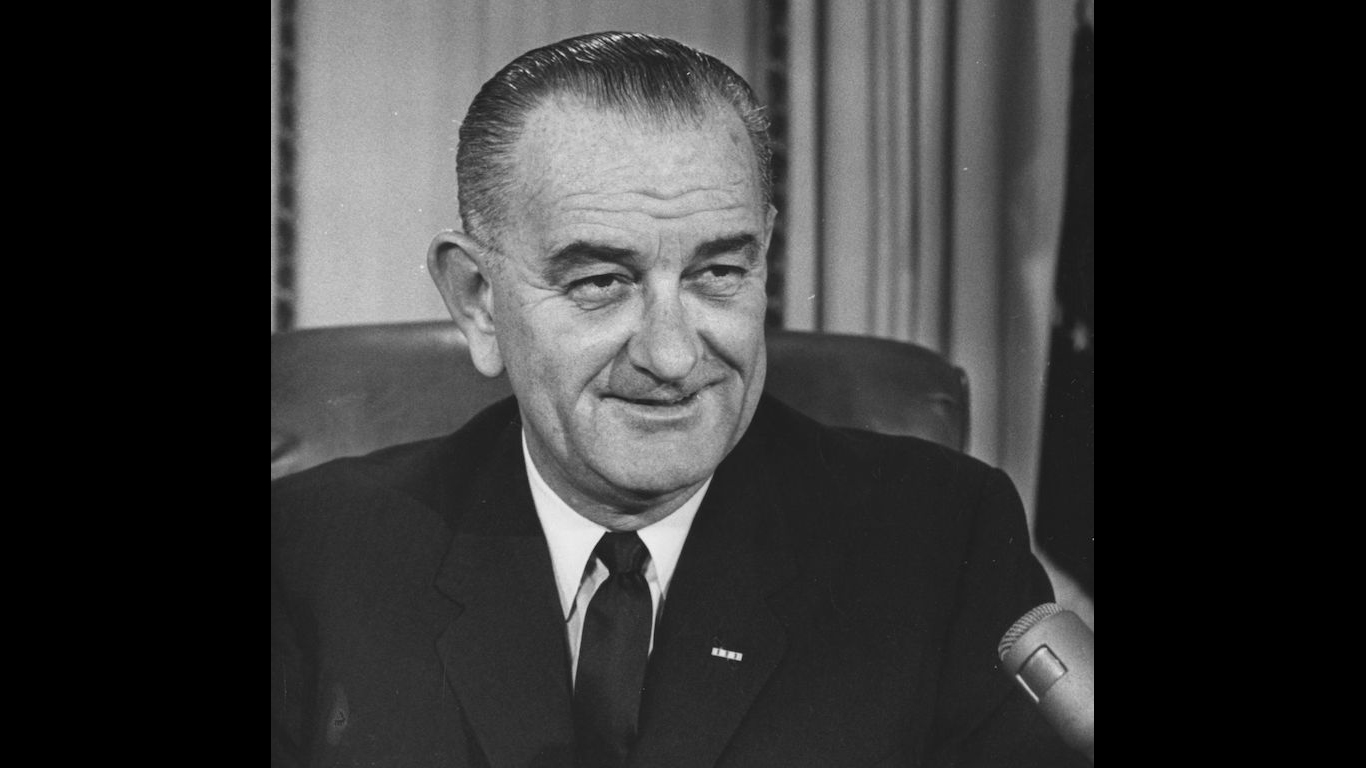
8. Lyndon Baines Johnson
> Term: 1963-1969 (36th president)
> Source of fortune: Broadcasting
> Peak net worth (inflation adjusted): $111.2 million
Lyndon Baines Johnson owned assets such as livestock and 1,500 acres of land in Texas. However, the main source of income for Johnson and his wife, Lady Bird, was their Texas TV and radio station business. Though the radio station KTBC was technically in Lady Bird’s name, LBJ reportedly used his considerable influence as a member of Congress to make the acquisition go smoothly and make the station a success. The Johnsons later expanded their portfolio to include other TV and radio stations in Texas.
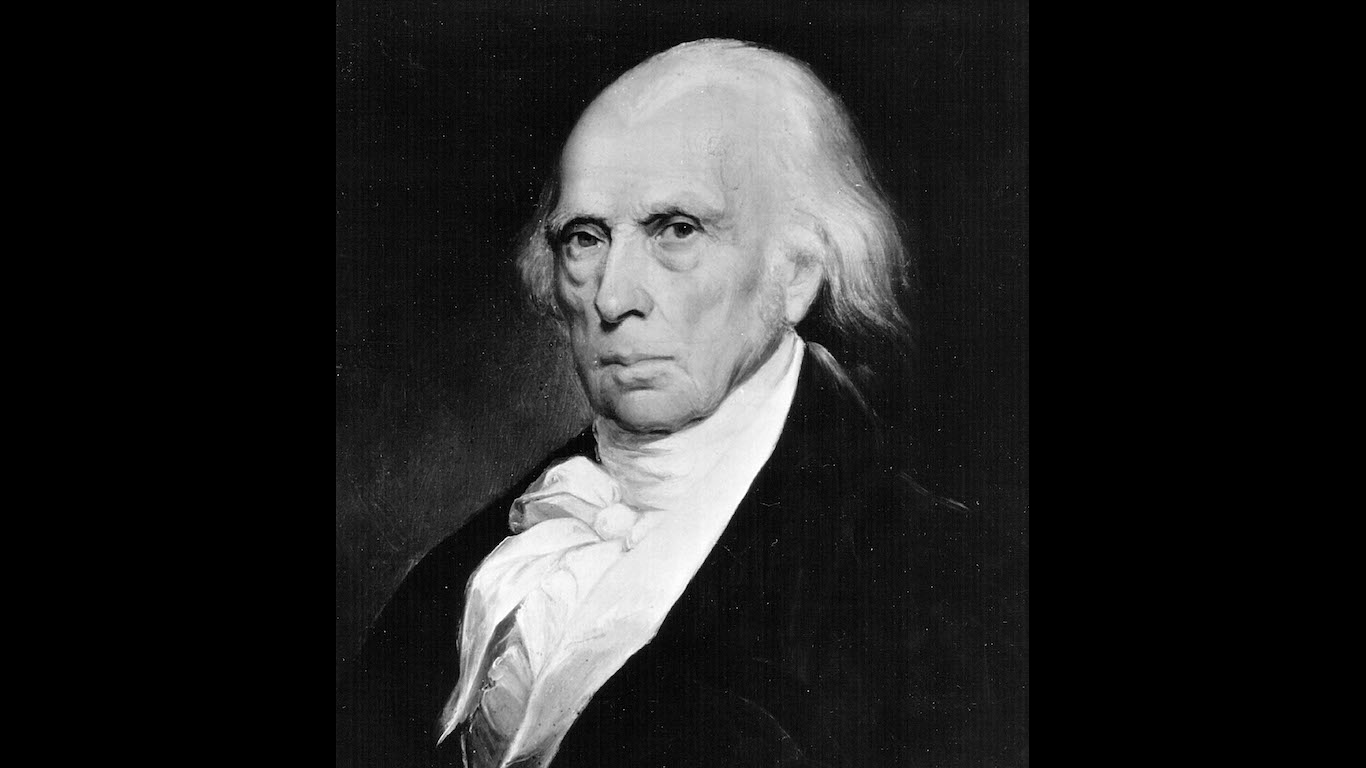
7. James Madison
> Term: 1809-1817 (4th president)
> Source of fortune: Inherited
> Peak net worth (inflation adjusted): $115.4 million
James Madison was born to wealthy parents in Orange County, Virginia. His parents ran a successful plantation and eventually built the famed Montpelier estate on their land. They owned several thousand acres of land and dozens of slaves. Though wealthy at one point, Madison’s fortunes dwindled towards the end of his life. His plantation was not successful, and he was further strained by his stepson’s debts.
[in-text-ad]

6. Andrew Jackson
> Term: 1829-1837 (7th president)
> Source of fortune: Plantation
> Peak net worth (inflation adjusted): $135.0 million
Born poor in 1767, Andrew Jackson became wealthy through his law practice. He also inherited a fortune from his wife Rachel. By 1804, Jackson owned nine slaves and was wealthy enough to build a mansion, the Hermitage. As the estate grew more successful, he continued to expand his land and purchase more slaves. Jackson owned about 150 people at the time of his death.
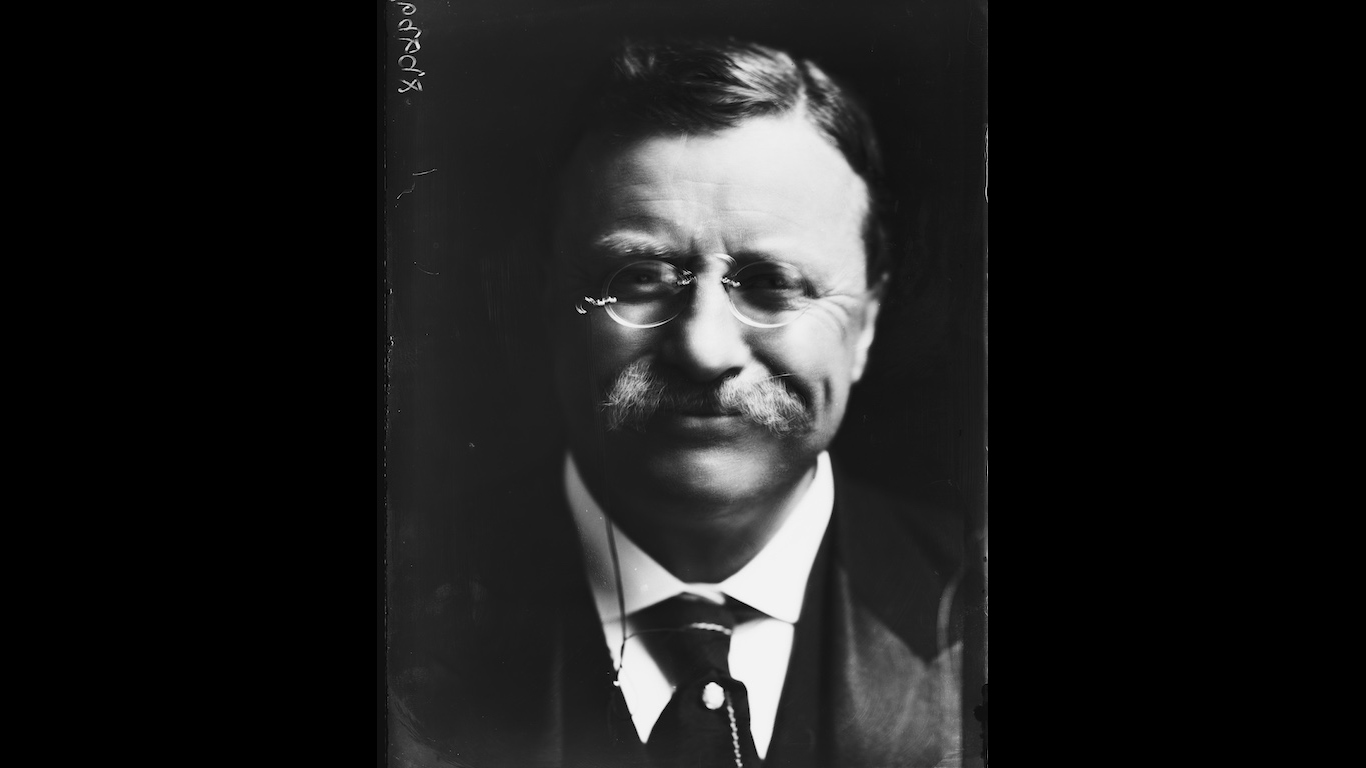
5. Theodore Roosevelt
> Term: 1901-1909 (26th president)
> Source of fortune: Inherited
> Peak net worth (inflation adjusted): $142.2 million
Theodore Roosevelt came from a wealthy and prominent family. His fifth cousin, Franklin Delano Roosevelt, appears earlier on this list. Teddy Roosevelt was significantly wealthier than his cousin, having inherited a large trust fund. Though he was born wealthy, Roosevelt does not appear to have increased his wealth much as he spent almost his entire adult life in public service from the time he was elected to the New York State Assembly at 23.
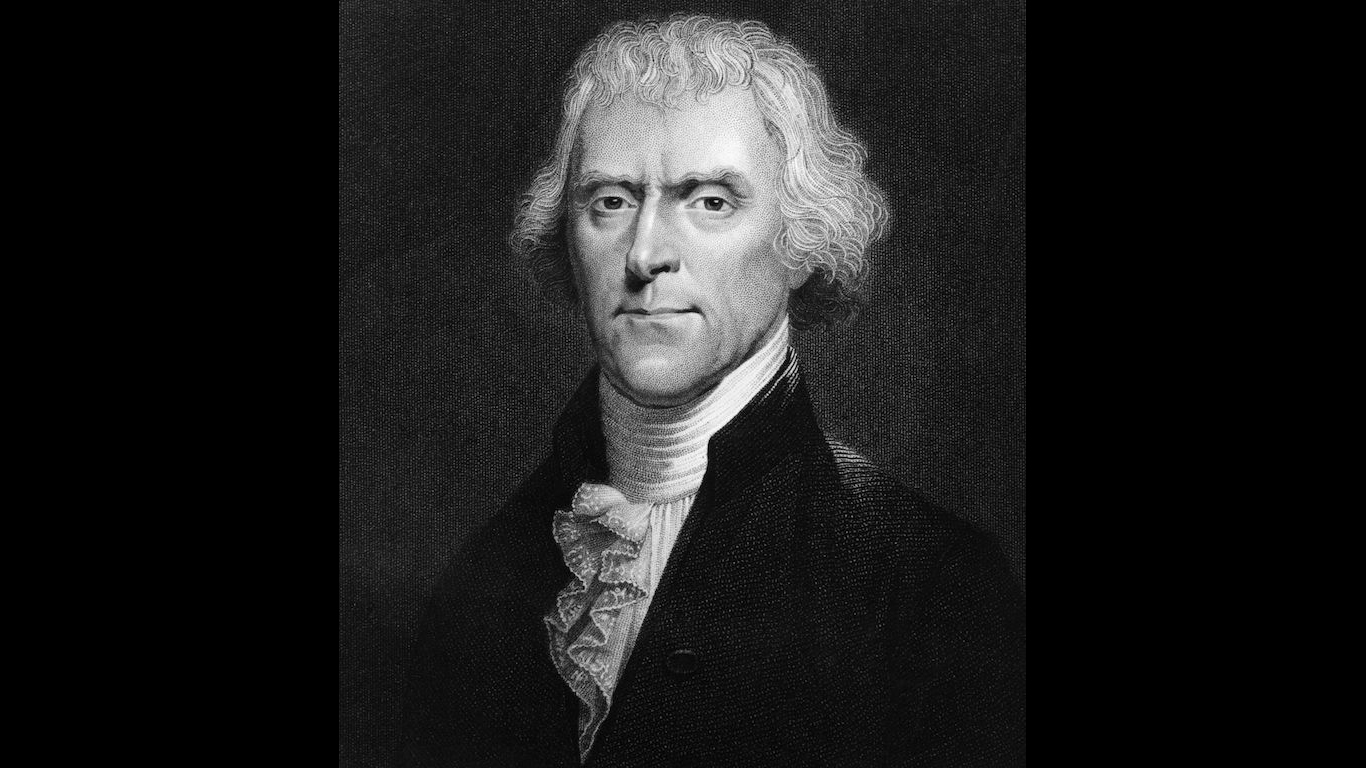
4. Thomas Jefferson
> Term: 1801-1809 (3rd president)
> Source of fortune: Inherited
> Peak net worth (inflation adjusted): $241.1 million
When he was a teen, Thomas Jefferson inherited 3,000 acres of land from his father near present-day Charlottesville, Virginia. Jefferson expanded the land to 5,000 acres and built his architecturally advanced home Monticello. Though he was extremely wealthy for most of his life, he died in a great deal of debt, and his eldest daughter had to rely on charity for income.
[in-text-ad-2]
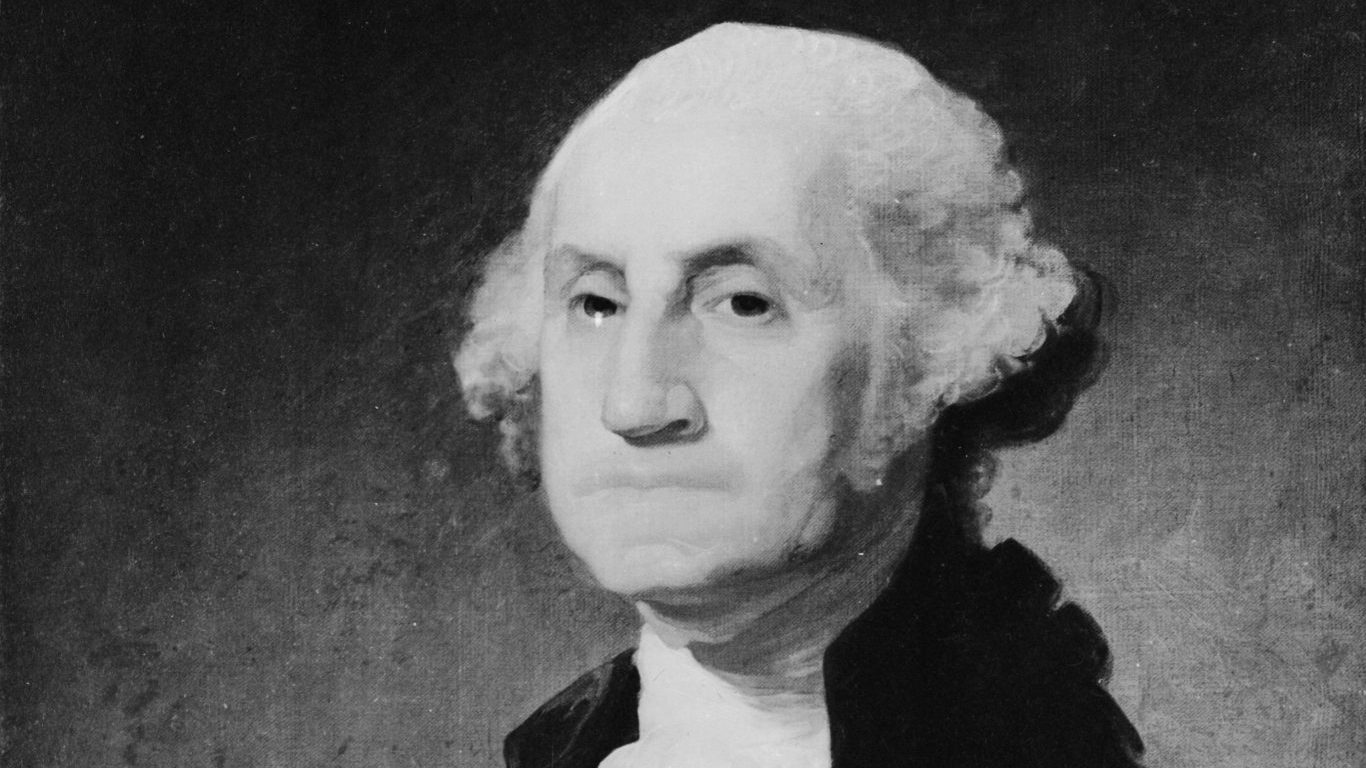
3. George Washington
> Term: 1789-1797 (1st president)
> Source of fortune: Inherited
> Peak net worth (inflation adjusted): $597.6 million
George Washington was America’s first president and also its wealthiest for more than a century. He inherited his extremely successful plantation, Mount Vernon, from his half brother. Washington also made substantial money as a general and as president. His presidential salary in 1789 was 2% of the total U.S. budget.
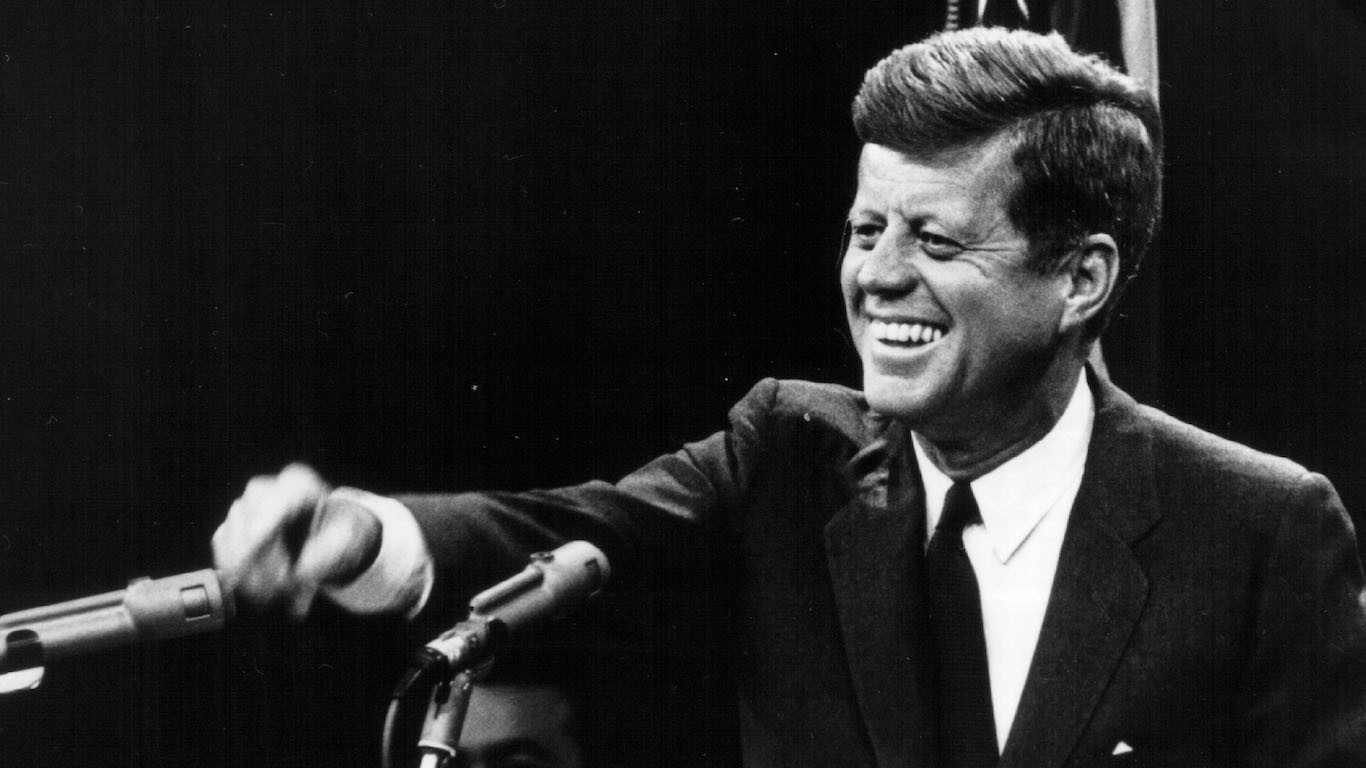
2. John Fitzgerald Kennedy
> Term: 1961-1963 (35th president)
> Source of fortune: Inherited
> Peak net worth (inflation adjusted): $1.1 billion
The Kennedys are one of the most powerful and influential families in American politics, and that was even more true in the 1960s. John F. Kennedy’s father, Joe, made much of his fortune through banking and investing. He was one of the richest men in the United States, and the family fortune endures to this day. Kennedy clearly benefited from his family’s wealth, but estimating his exact net worth at its highest point is especially difficult.
A number of other siblings shared a portion of the trust. In addition to the family’s wealth, Kennedy’s wife Jacqueline, was heiress to a vast oil fortune. The couple’s combined wealth amounted to more than a billion dollars when adjusted for inflation.
[in-text-ad]

1. Donald John Trump
> Term: 2017- (45th president)
> Source of fortune: Real estate
> Peak net worth (inflation adjusted): $3.2 billion
Before he entered politics, Donald Trump was a prominent figure in New York City’s real estate scene. Trump took over his father’s business and grew it into an empire. Though many of his other businesses have failed, Trump’s vast property holdings make him by far the wealthiest president of all time.
In addition to a number of New York City buildings, Trump owns over a dozen golf clubs and many resorts. Trump broke precedent when he declined to release his tax returns as a candidate and later as president, so it is difficult to know his exact worth. What is certain is that he is extremely wealthy.
Methodology
Calculating the wealth of presidents who served hundreds of years ago is a challenging task, especially given the way that wealth and finances documentation has changed since the U.S. was first founded. Historical sources often give a range for a president’s net worth, adjusted for today’s dollar value.
24/7 Wall St. analyzed the finances of U.S. presidents based on historical sources. The figures were adjusted for inflation to annual 2019 levels, the most recent available. We have accounted for hard assets such as real estate, estimated lifetime savings based on work history, and inheritance. We also considered annual salaries, incomes earned from royalties on books, ownership of companies, yields from family estates, and other forms of income.
The ranking is based on peak net worth, or how much a president’s combined assets were worth at the time in his life when he was the richest. Many presidents became impoverished or even went into debt after their time in office.
Find a Qualified Financial Advisor (Sponsor)
Finding a qualified financial advisor doesn’t have to be hard. SmartAsset’s free tool matches you with up to 3 fiduciary financial advisors in your area in 5 minutes. Each advisor has been vetted by SmartAsset and is held to a fiduciary standard to act in your best interests. If you’re ready to be matched with local advisors that can help you achieve your financial goals, get started now.
Thank you for reading! Have some feedback for us?
Contact the 24/7 Wall St. editorial team.
 24/7 Wall St.
24/7 Wall St.